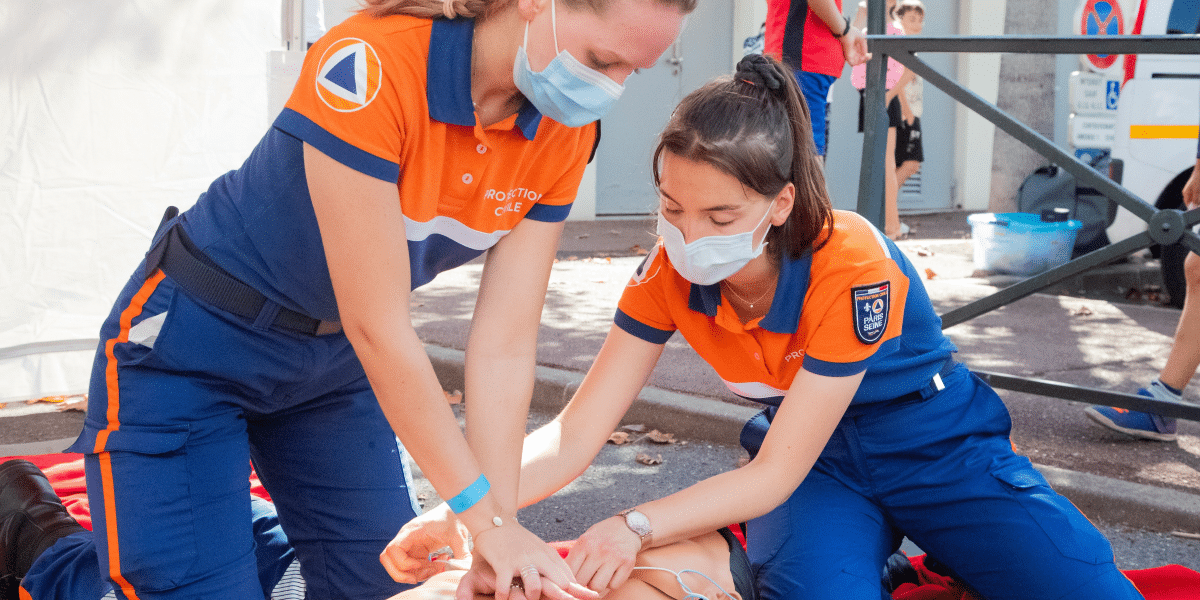Introduction
A study on cardiac arrest mortality rates indicates a significant rise, with figures reaching 104.5 per 100,000 individuals in 2020, up from 89.7 per 100,000 residents in 2019. This data depicts the importance of administering basic life support (BLS) and cardiopulmonary resuscitation (CPR) to patients on time to improve the mortality rate.
BLS and CPR are life-saving procedures that serve as immediate interventions during cardiac or respiratory emergencies and can improve a patient’s chances of survival. Signing up for a BLS and CPR certification course is the first step toward learning these important skills, which can make you a valuable member of your community.
Maintaining the validity of your BLS and CPR certification
Let’s look at the benefits of maintaining a valid BLS and CPR certification:
Stay updated with the latest techniques and guidelines
The medical field is continuously evolving, with many discoveries made by researchers and practitioners due to progressing technology. BLS and CPR protocols are no exception to this advancement. Therefore, as new practices emerge, it becomes imperative to renew your certification and keep up with updated practices and protocols.
Demonstrate professional commitment
Consistently renewing your BLS and CPR certification shows your commitment to your profession. It helps you remain confident in your ability to step in during emergencies to improve a person’s chances of survival. Renewing your certification is also proof of dedication and responsibility and aids professional development. Most healthcare employers expect their staff to have an active BLS and CPR certification. If your certification expires, it may jeopardize your current position or hinder your chances for career growth.
Instills confidence
Regular renewal of your BLS and CPR certification can help instill confidence among the people near you, such as your colleagues, patients, friends, or family members.
Valuable refresher course
Renewing your certification serves as a valuable refresher. Even if there have not been major changes in the guidelines, revisiting the procedures and techniques is always helpful. Refresher courses help you practice your skills and ensure you can apply them when needed.
Legal responsibility
Maintaining an updated BLS and CPR certification is a legal requirement for many professions, especially if you work in health care. Failure to renew could lead to disciplinary action, loss of licensure, or legal liability. Thus, a valid certification can shield you from potential legal repercussions.
Frequency of BLS and CPR certification renewal
Like many other professional certifications, the BLS and CPR certification requires regular renewal to ensure the holder’s skills and knowledge remain current and effective. In general, this certification should be renewed every two years.
Renewing your BLS and CPR certification: Things you must know
Once you’ve identified the need for renewal, the next step is to find a certified training provider. You can find in-person classes, online courses, or blended learning options that combine both. Choosing the method that best suits your learning style and schedule is crucial. Here are the steps to follow to renew your certification:
Enrollment process
First, find a reputed course provider and enroll in a CPR and BLS certification course. If you opt for offline classes, you will need to schedule and attend them. On the other hand, you can attend an online class at your own pace and schedule. However, even with online courses, you must complete a hands-on skills session to demonstrate your practical abilities.
Course content
The renewal course will involve a review of the key concepts, including:
- Chest compressions
- Rescue breaths
- Use of AEDs
You will also learn about team dynamics in resuscitation and the importance of effective communication during a cardiac emergency.
Assessment and certification
Upon completing the course, you must pass an assessment exam. This usually involves a written test and a practical demonstration of your BLS and CPR skills. The assessment ensures that you have retained the knowledge and can apply the skills effectively in a real-life situation. After you pass the evaluation, you will receive your renewed certification. This certification is valid for two years, and you will need to go through the renewal process again before it expires.
Tips to keep your BLS and CPR certification valid
Keeping your BLS and CPR certification valid is crucial. It’s easy to overlook the expiry date with busy schedules and other commitments. Here are some tips to ensure your certification stays up to date:
Set digital calendar reminders
One way to stay alerted about certification expiry is to set reminders in your digital calendar. You can set a reminder a month before to prepare for your refresher course.
Subscribe to email notifications
Most certifications last two years, so set a reminder a few months before they expire to allow time for renewal. Additionally, subscribe to email notifications from your certification provider for timely reminders about upcoming expirations.
Stay connected with peers
Staying connected with your peers who also hold a BLS and CPR certification can be beneficial. They can serve as a reminder system, especially if you all got certified around the same time. You can remind each other when it’s time to renew.
Keep your certificate valid and visible
Keeping your certification card in a visible place can also serve as a daily reminder. Seeing the card often can help keep the expiry date at the forefront of your mind.
Regularly check your certification status
Finally, it’s helpful to get into the habit of regularly checking your certification status. You can easily add this to your monthly or quarterly personal review routine, where you review different parts of your professional life.
Conclusion
Maintaining your BLS and CPR certification ensures you’re well-prepared to assist in emergencies. It’s important to have a valid certification when providing BLS or CPR. Therefore, stay proactive in renewing your certificate to sustain your expertise and adherence to regulations. Look for a refresher course near you or sign up for an online renewal course to take advantage of its flexibility and convenience.
Published by: Nelly Chavez


















